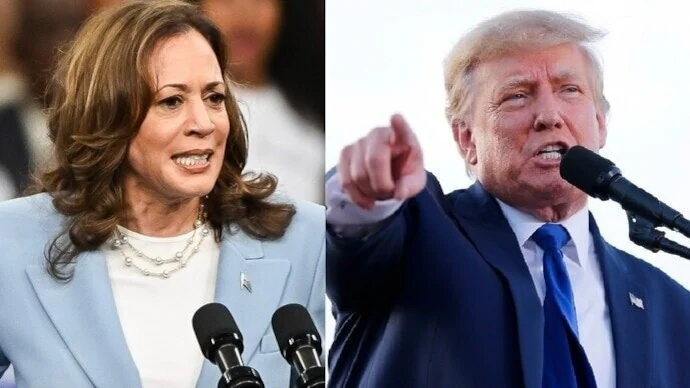The recent US presidential elections, with Donald Trump poised to reclaim the presidency, are set to significantly influence India’s textile trade, which is a crucial sector in the country’s economy. With annual trade between the US and India exceeding $190 billion, the election outcomes will have direct implications for Indian exports and imports, particularly in textiles.
Challenges Under Trump’s Administration
Trump’s “America First” policy may reignite trade tensions, leading to increased tariffs on Indian goods. Analysts predict that textiles, along with automobiles and pharmaceuticals, could face higher duties, making Indian products less competitive in the US market. Ajay Srivastava, founder of GTRI, points out that such tariff hikes could adversely affect revenue in these sectors. Trump’s previous administration had already labelled India as a “trade abuser,” suggesting a potential for renewed scrutiny and restrictions on Indian exports.
Kamala Harris: A Different Approach
Conversely, if Kamala Harris were to win, experts believe her administration would likely maintain a more balanced trade relationship with India. While she may keep tariffs on Chinese goods, it is expected that she would avoid escalating tariffs on allies like India. This approach could provide greater predictability for Indian exporters and possibly lead to lower tariffs on certain textile products.
Strategic Shifts and Opportunities
Both candidates are anticipated to focus on reducing reliance on China, aligning with India’s strategic goals. A tougher US stance on China could create new opportunities for Indian textile exporters as companies look to diversify their supply chains. However, the overall impact of Trump’s policies could lead to an escalation of the tariff war, which would require careful navigation by Indian policymakers.
Visa Policies and IT Sector Vulnerabilities
Additionally, the outcome of the elections will affect India’s IT sector, which is closely tied to its textile industry through outsourcing. With over 80% of India’s IT export earnings coming from the US, changes in visa policies could pose challenges. Trump has indicated intentions to tighten H-1B visa regulations, potentially increasing operational costs for Indian IT firms that support textile manufacturers.
In summary, as India braces for potential shifts in its trade dynamics with the US post-elections, the textile sector must prepare for both challenges and opportunities depending on who occupies the White House.

